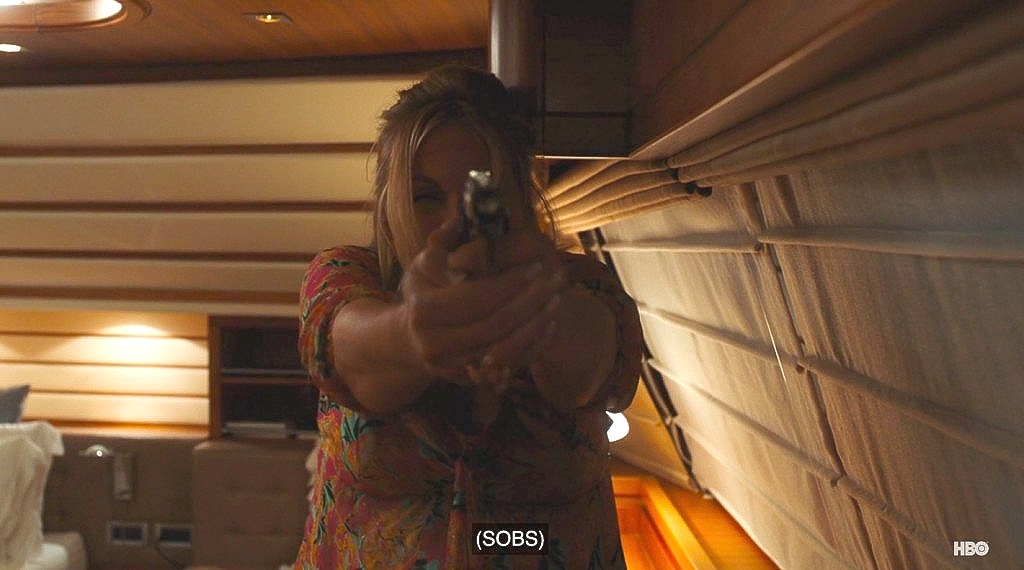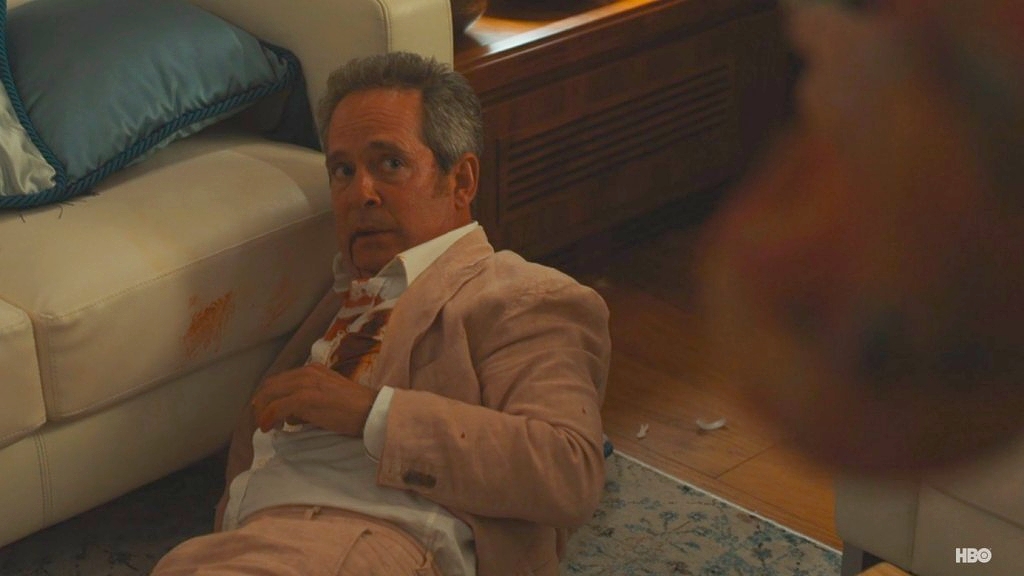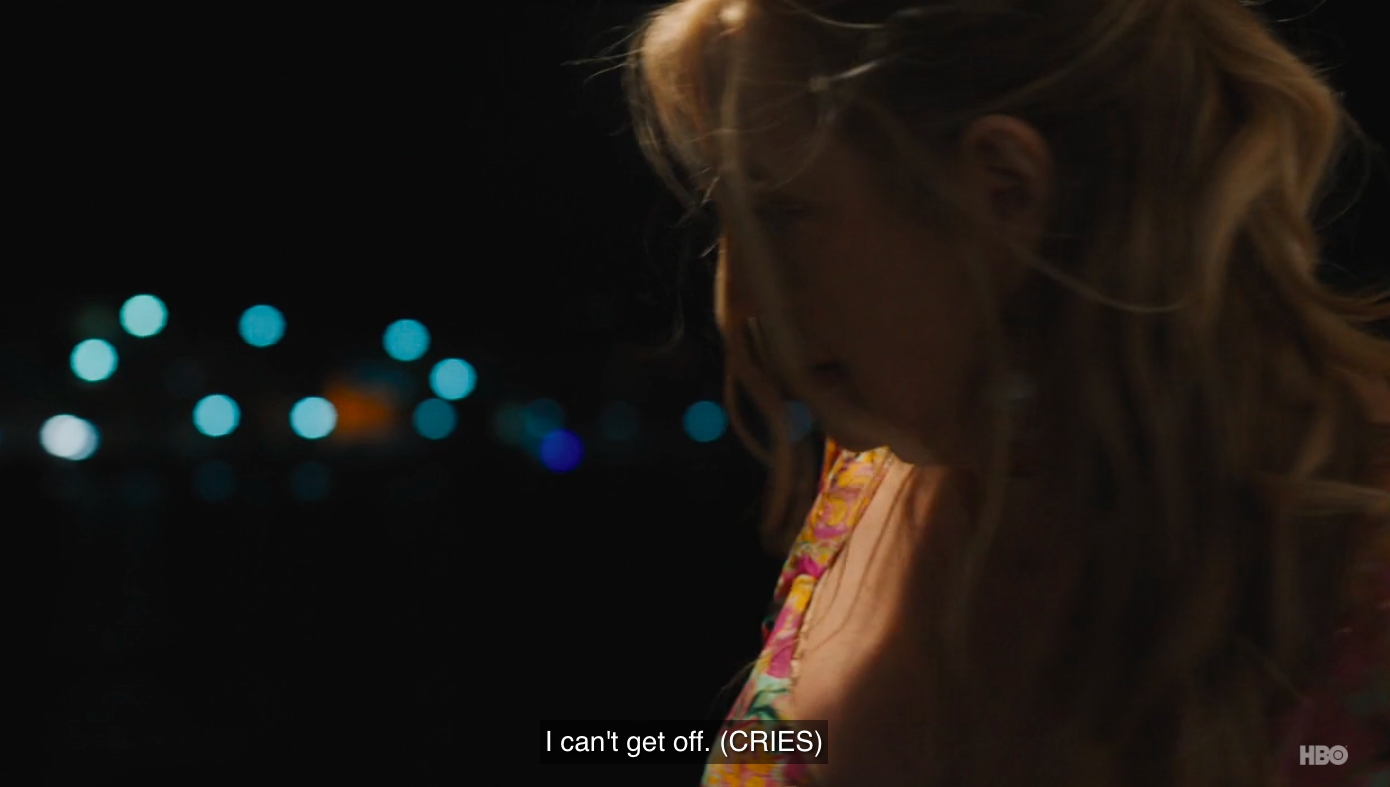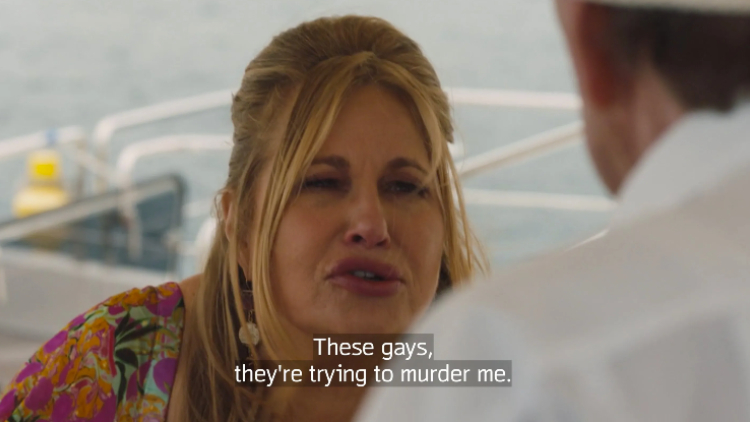
The White Lotus season two finale ends with a great tragedy, and we are all recovering in our own ways. The ever-paranoid Tanya, played by the always iconic Jennifer Coolidge, is (correctly) convinced that the gay men she’s been hanging out with while on her vacation in Italy are trying to kill her. After some wine, a stumbling, shaky Tanya manages to steal a gun. Like me playing GoldenEye in 1997, Tanya shoots at the gays at random, with her eyes mostly closed. Her aim? Somehow perfect, unlike me playing GoldenEye in 1997.

Tanya approaches a dying Quentin and instead of saying what most people would ask him in this unique situation (“why???????”), she asks, “is Greg having an affair?” Quentin, more shocked by the question than the fact that this woman shot him, stares at her befuddled, blood pouring out his mouth. Moments later, Tanya tries to jump into a boat to escape in platform heels. Her critical thinking skills fail her, and she falls to her death.

I just described all that even though if you’re reading this, you probably know what happened, for dramatic effect — it gets funnier every time. Tanya’s death is not only one of the funniest death scenes ever committed to a visual medium, but one of the funniest scenes ever committed to a visual medium; right up there in the hall of fame of scenes that should be depressing but are deeply funny like Chris Moltisanti’s intervention on The Sopranos or the death of Mrs. Blankenship on Mad Men. It’s nearly high fantasy in that it forces the audience to believe that someone like Tanya could be capable of such a shootout. Then, once she saves herself in a heroic act, she dies because she isn’t clever enough to simply … walk to the bottom of the yacht so it is easier to get inside the boat. Also, she doesn’t think to take off her heels. It’s sad on the surface, but knowing Tanya for two seasons makes it a little bit better: of course this is how she would die.

Also, Jennifer Coolidge shooting a bunch of gays is some sort of meta-commentary for a celebrity who is so revered by the gay community in real life: turning the people who love her most into her villains is the ultimate twist, and the ultimate test not only for the audience but for Coolidge, too, who plays it brilliantly: Tanya is not hurt that she is going to be killed, but that she is going to be killed by the gays. And what upsets her even more than that is that Greg might have been having an affair.

Tanya’s death is a tragedy, of course. The more you think about how funny it is, it gets sadder. Tanya was her own worst enemy, unwilling to face consequences or to really think things through. She did, after all, go to a second location with a group of strangers she barely knew who were, if you think about it for more than a few seconds, incredibly suspicious from the beginning. Tanya was a nervous, sad, lonely, and incredibly anxious woman who kind of behaved like a toddler despite having all the money in the world. As a result, she got taken advantage of not only by a group of sinister money-hungry gays but by her own husband. Her own helplessness led to her death. Tanya’s shooting success and subsequent pratfall off the yacht represent what makes The White Lotus and Mike White’s writing so great: it is a sharp commentary on culture and human nature, both deeply sad and deeply funny in its honesty.
